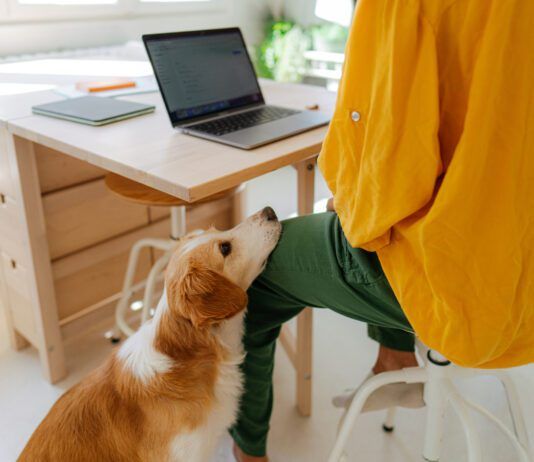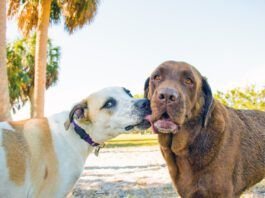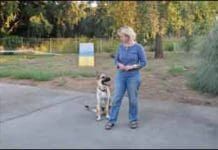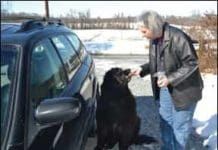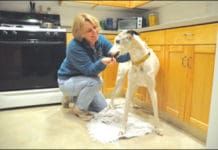Building Up Your Dog’s Confidence
graceful exit!üThe "get behind" game establishes you as a human safety shield for your dog. It's good to use when you are unable to escape the proximity of something that might otherwise scare your dog. (Thanks to Sarah Richardson
Learn to Read Your Dog’s Body Signals
How many times have I heard a dog owner say, If only they could speak!" And how many times have I bitten back my first retort: "But they can speak! You're just not listening!" We humans are a verbal species. We long for our beloved canine companions to speak to us in words we can easily understand. While they have some capacity for vocal communication
Guide to Stress Signals in Dogs
Stress causes the appetite to shut down. A dog who won't eat moderate to high-value treats may just be distracted or simply not hungry, but refusal to eat is a common indicator of stress. Appeasement and deference aren't always an indicator of stress. They are important everyday communication tools for keeping peace in social hierarchies, and are often presented in calm, stress-free interactions. They are offered in a social interaction to promote the tranquility of the group and the safety of the group's members.
The Meanings Behind Different Dog Sounds
Canine vocal communications can be classified as barks, growls, howls, whines, and whimpers. Within those classifications, the sounds can have varying meanings. Your dog's voice must be taken in context with the rest of his behavior and body language for you to truly understand what he's saying to you.
Guide to Reading Canine Body Language
Despite conventional wisdom, a wagging tail doesn't always mean a happy dog. The following abridged Canine/English dictionary will help you become a skilled translator. Remember that breed characteristics can complicate the message; the relaxed ears and tail of an Akita (prick-eared, tail curled over the back) look very different from the relaxed ears and tail of a Golden Retriever (drop-eared; long, low tail). Also note that if body language vacillates back and forth it can indicate ambivalence or conflict, which may precede a choice toward aggression.
New Recommendation for Fear-Based Behavior Problems
In May, I attended a seminar given by noted veterinary behaviorist Nicholas Dodman, section head and program director of the Animal Behavior Department of Clinical Sciences at the Tufts University Cummings School of Veterinary Medicine. The seminar, “The Well Adjusted Dog: Secrets to Understanding Canine Behavior,” covered a number of behavior problems, including aggression, separation anxiety, phobias, post-traumatic stress disorder, and canine compulsive behavior.
How to Help Your Noise-Phobic Dog Get Through Loud Events
July 4th is still a month away, but in many parts of the country sound-sensitive dogs and the humans who love them are already struggling with the effects of thunderstorms. Our Corgi, Lucy, is a thunder-phobe, and we know all too well the impact thunder and firecrackers have on her (and our) quality of life. Fortunately, the following can make life better for you and your dog during noisy events.
Taking More Steps To a Calm Dog
Every behavior and training professional has seen her share of WCCS dogs. Some have developed their own programs to help humans help their dogs.
Training a High-Energy Dog to Calm Down
and now offers a calm sit or down when he wants something
Help For a Dog With Car Phobia
Behavior issues, from simple good manners infractions to the more concerning problems of phobias and aggression, appear in dogs both large and small. But while training to modify behavior issues might look the same regardless of size, in other respects, the bigger the dog, the bigger the problem. When a Dachshund has a lapse in housetraining, the cleanup process is significantly easier than if an Irish Wolfhound has an accident. If a Havanese frantically jumps up on your elderly Aunt Tilly, the collateral damage is less than if a Great Dane does the same. And if a Yorkie is terrified of riding in the car and refuses to get in for an emergency trip to the vet, he can be picked up and placed inside – not so when a Newfoundland steadfastly refuses.
Maintaining Healthy Physical Contact with Your Dog
Have you ever stopped to think about how many times a day you do something to your dog that involves physical contact? I’m not talking about petting him when he nudges up against your leg; I’m talking about grasping his collar, putting his leash on, picking him up, wiping debris from the corners of his eyes, wiping the mud off his paws, trimming fur somewhere on his body, and many more “husbandry” procedures that require various degrees of restraint and touch. Chances are you really only think about it when your dog protests, but chances are he thinks about it every time you reach for him.
5 Things to Do the Next Time Your Dog Grabs Your Stuff and Runs
Your dog grabs your stuff and runs away either because she knows you're going to take it from her and she doesn't want you to, or she's inviting you to join in her a fun game of Catch me if you can." In either case


